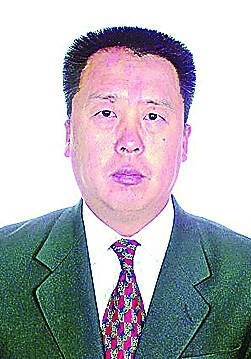


(Jose Luis Rodriguez Zapatero,Former Prime Minister of Spain)

(Xiao Lianbing,Secretary of International Exchange and Communications Center)
Q: The COVID-19 pandemic is still spreading globally and its end is not in sight. The global number of confirmed cases has exceeded 16 million and subsequent deaths 600,000. Humanity is experiencing the greatest public health emergency of the century. How does the President think about the impact of this pandemic on human society?
A: People's behavior and government priorities are going to change. And the economic consequences will last over time. In my opinion, from the actions of the States as a fundamental response to this pandemic, we should witness a rebirth of multilateralism, of cooperation, within the great international institutions to build global governance in the face of the global crises. And, in particular, the Sustainable Development Goals for 2030 should be prevented from being set back as a result of the pandemic.
Q: What does the President has to say about the current situation of COVID-19 in Spain, the measures taken by the Spanish government in responding to this tremendous public health crisis, and the lessons and experience that Spain can share?
A: My country, which is very open to the world, has suffered severely from the impact of the pandemic, with a loss of nearly 30,000 human lives so far. It was one of the first European nations in which the infection spread and the Government reacted with strict confinement measures, more intense than that of neighboring countries, which greatly reduced its impact. But now we are fighting what seems to be a second wave, trying to make this fight compatible, like the other European countries, with the maintenance of economic activity. It is still too early to predict what may happen in the time before an effective vaccine manages to immunize the entire population. When all of this is over, a comparative assessment will have to be made of the causes of the greater or lesser spread of the virus in different countries and of the effectiveness of the different responses adopted.
Q: In the face of the pandemic, some US officials and politicians resorted to "political stigmatization" to attack China. How does the President think about it?
A: It seems to be a very serious error. The pandemic could have any origin and it has affected all of us. There is no any political cause, any flag, neither any ideology in the pandemic ... Only insecure politicians or governments can blame others for a health crisis like the one we are experiencing.
Q: After the outbreak of the pandemic, Europe and China have supported each other. Could Mr. President speak about the support of the Chinese government for Spain, and the role of joint Sino-Western and Chinese-European efforts in the global fight against the pandemic?
A: China has taught us several lessons with its response to this pandemic. The first, that of how to control the virus, with very strong and sustained measures. The second, with its spirit of cooperation, since it has been the main donor of medical supplies in the world in this crisis. And it has taught us a third lesson, its economic recovery, which will also help to reactivate global economic growth, a recovery, the Chinese one, based on a new impulse from the most advanced technologies and innovation.
Q: Virus does not distinguish between races and pandemic does not respect borders. Humanity is facing a common challenge. The international medical community pointed out that the coronavirus would live with us in a long term. At the opening ceremony of the video-conference of the 73rd World Health Assembly on May 18, Chinese President Xi Jinping presented the initiative to build a "Global Community of Health for All." What is your comment on this?
A: Clearly favorable. In effect, we must build a global health community, just as we must deepen the construction of a global community in the face of climate change, in the face of inequalities and poverty, and a global community to confront violence and in defense of peace. If there could be a little or should be a little doubt about the need to face challenges of this same nature, those which affect all of us, with shared global strategies, COVID-19 has cleared them up. To common threats, joint responses. More and more we discover ourselves as one humanity.
Q: 2020 marks the 45th anniversary of the establishment of diplomatic relations between China and the EU. Recently, President Xi Jinping stated in the "China-EU Leaders Video-conference" that this world, under impact of the pandemic, is undergoing profound changes and faces more uncertainties and instability. " Both China and Spain are advocates and supporters of global multilateralism. What does the President think about promoting multilateralism in international affairs?
A: Only a future founded on multilateralism, on strong international institutions, and on cooperation allows us to think that the 21st century will be able to face the challenges for our civilization. The alternative is successive crises, deterioration of global economic imbalances, and increase in the serious risks looming over the conservation of our planet. Last century lived through very bitter periods. Nothing guarantees progress. For this reason, I am convinced that there is only space for leadership exercised from multilateralism, not from confrontation, and that China as a world power is well aware of this.
Q: In the post-COVID era, what role will the Belt and Road Initiative play in the recovery of the global economy? Should the principle of "shared growth through dialogue and collaboration" advocated by such an initiative guide the cooperation of the international community?
A: The Belt and Road Initiative, a new version of the Silk Road, is a great opportunity for broadening communication and promote development and economic growth. China should persevere in carrying it out and I am convinced that it will have a beneficial impact on all countries that join it.
Q: Compared with the relations between China and other EU countries, what is the particularity and importance of the Sino-Spanish relationship? What are the mutual benefits?
A: China and Spain defend an unequivocally multilateral vision of international relations, the principle of peaceful conflict resolution, the principle of respect for sovereignty, and that of one China and one Spain. Besides, both nations have a great deposit of culture, two universal languages, a great historical heritage ... and they are countries that have managed to straighten their development and progress in the last 40 years. I have always believed that Spain should be China's best friend in Europe and that China should therefore consider Spain as a European priority.
Q: What do you think of the importance of Spain in the development of Sino-Latin American relations?
A: To say Spain is to say Latin America. Spain cannot be understood without Latin America. And today China has achieved a great capacity for relations with Latin American countries. Therefore, the policy towards Latin America is another meeting place for our two nations, a very relevant projection of the Chinese-Spanish vision of the world.
Q: Could you tell us how you promoted healthy development of Spain-China relations during your term as Prime Minister and do you have any constructive comments on this issue?
A: During my tenure, a Strategic Partnership Agreement was signed between China and Spain. I am pleased to say that I have been the Spanish President who traveled to China the most times, something I have continued to do afterwards, at least once a year. We had no conflict and everything was cooperation between us. There was a takeoff in trade relations, and I will always be grateful for the support that China gave my country to achieve a permanent presence in the G20, as well as during the European financial crisis of 2010.
点击右上角![]() 微信好友
微信好友
 朋友圈
朋友圈

请使用浏览器分享功能进行分享
